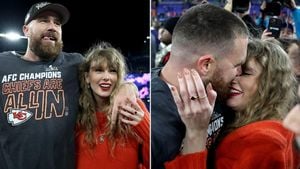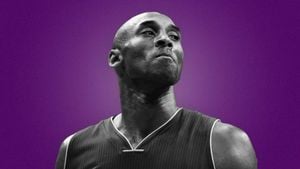Sir Paul McCartney has issued a stark warning about the potential exploitation of musicians by artificial intelligence (AI) as discussions around proposed changes to copyright law intensify.
At the age of 82, the iconic Beatles songwriter expressed his concerns during recent interviews, urging the British government to reconsider its plans, which he believes could empower AI developers to use artists' work without proper compensation. Speaking to the BBC, McCartney articulated his fears, stating: "You get young guys, girls, coming up, and they write a beautiful song, and they don’t own it, and they don’t have anything to do with it. And anyone who wants can just rip it off." This alarming scenario, he argues, could undermine the very foundation of creativity within the music industry.
McCartney reflected on the broader financial dynamics of the music world, questioning why the profits from music are not going to the artists themselves. He elaborated, "The truth is, the money’s going somewhere. Somebody’s getting paid, so why shouldn’t it be the guy who sat down and wrote Yesterday?" His passionate plea highlights concerns over equity and fairness for musicians who create the content but may not receive due recognition or financial support.
The source of McCartney's apprehension stems from the Labour government's current consultation process, which explores how creators can license and receive fair compensation for their works. This public consultation is open until February 25 and is intended to clarify how copyright could protect musicians and allow them to exercise control over their intellectual property.
Despite the government's claims of working toward legal certainty and transparency for artists, critics of these proposed changes argue the opt-out system for rights holders is unworkable. McCartney’s warnings resonate with many within the industry who fear the consequences of AI advancing unchecked. He called for the government to reassess and prioritize the interests of artists, asserting, "We’re the people, you’re the government. You’re supposed to protect us. That’s your job." Such statements have fueled discussions about the importance of safeguarding intellectual property rights.
McCartney’s remarks come at a pivotal moment, with the Beatles' recent single, Now and Then, garnering significant attention and praise. The track, released as the band's last song, has not only topped charts across multiple countries but has also received nominations for prestigious awards such as the BRIT Awards and the 67th Annual Grammy Awards. This song was conceived from John Lennon’s 1977 demo and utilized AI technology to blend new elements and create the finished product.
While AI played a role in enhancing the Beatles’ production, Ringo Starr has voiced similar concerns about the technology’s broader impact on musicians. Last year, Starr expressed his fear of AI's potential to mimic artists: "We’re all a bit afraid of it, because it can steal you." He emphasized the challenges artists face with AI's capacity to replicate their unique styles and vocal nuances, stating, "If they just play any five of my songs, AI gets all of it and knows my every vocal move. They can have me sing anything, and it will sound like me, because it's taken from my personality." Yet, Starr acknowledged the positive side of AI, referencing how it was used effectively on Now and Then.
The ramifications of the discussion around AI usage are far-reaching, extending beyond just the Beatles to all musicians who could find themselves at risk. Politicians have recognized the seismic shift necessary to deal with these pressures. Lisa Nandy, the Labour government's Culture Secretary, stated last year, "This government firmly believes our musicians, writers, artists and other creatives should have the ability to know and control how their content is used by AI firms and be able to seek licensing deals and fair payment." This acknowledgment of creators' rights is central to the current debate on the relationship between technology and creativity.
A myriad of stakeholders within the music industry are closely monitoring these developments, as the fate of their creative works hangs in the balance. Sir Paul McCartney's warnings serve as both a clarion call and rallying point as the music community prepares to tackle the challenges posed by AI exploitation and the pressing need for legislative protection.



